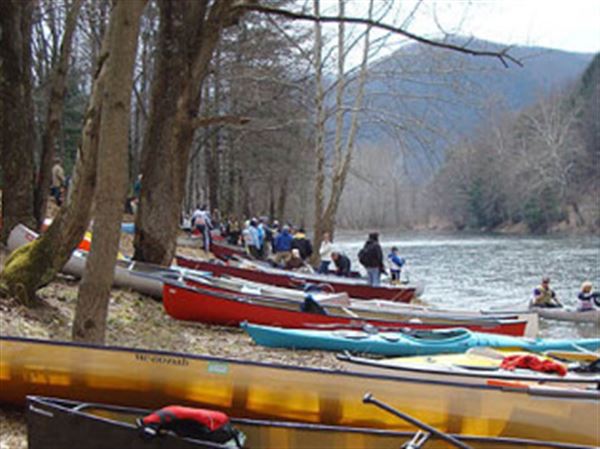My wife and I, organic farmers for 40 years, recently voiced public opposition to a permit for a natural gas compressor station on a parcel adjoining our farm in Beaver County.
Our first concerns are for the health of our family and neighbors, the quality and integrity of the produce of our farm and the health of those who consume it. But there are much wider implications.
We are only beginning to understand that humans are fully capable of so tampering with the environment that life itself as we know it can be compromised. A strong record is accumulating that in our lifetime we could see a species extinction on the scale of the greatest extinctions known. Some have named it the “Sixth Extinction.” Not only are complex species — frogs, bats, rhinos, corals — becoming extinct, but likely millions of minute forms as well.
Siting of the compressor station endangers the reputation of our farm as a trusted source of certified organic produce. This fastest-growing sector of the food industry results from suspicion by many that the living processes involved in food production are lots more complex than simple chemistry. We have dozens of doctors, nurses and other health professionals among our customers, though consumer protection agencies post no safety warnings concerning conventional fruits and vegetables.
One might argue that none of the emissions from gas extraction and processing are harmful to crops. Recent articles by researchers from Princeton, the University of Wisconsin, Cornell, Duke and others cite the serious lag in research as to the effects of the shale extraction industries on health and food, much less the impact on the larger environment.
The more we learn, the more complex these issues become. There are innumerable interrelationships which exist between environmental factors, living organisms on all levels, and plants or human health.
Through DNA analysis, the Human Microbiome Project has found that within the human body there are 10 times more microbes than actual human cells. The purpose and interactions of all these have only begun to be understood. It is already abundantly evident that our health and well-being are intimately related to this ecology.
This is true of our soils and food crops as well. Soil microbiologists in just the last few years have discovered there are billions of times more micro-organisms than were previously thought to exist. This in turn has led to an appreciation of myriads of beneficial symbiotic relationships these organisms have with other plants and animals. Endomycorrhizal strands extend far more extensively into the soil than plant roots. These fungi bring nutrients and water into the root cells themselves, exchanging them for plant sugars.
Fungicides, fertilizers and other environmental influences can frustrate this natural relationship. There’s plenty of evidence that the competition between the micro-organisms in a healthy soil eliminates the danger posed by some which are pathogenic to humans. Nature has it covered.
Gas infrastructure near our farm threatens the viability of a thriving farm. This is directly at odds with the stated desires of the vast majority of New Sewickley residents, who agreed when surveyed in 1991 and again in 2011, “The township’s working farms should be ... encouraged/preserved ...” by a 25-to-1 margin — the most lopsided response both times.
There are claims that coexistence is possible. This is true only if one ignores larger questions and assumes the primacy of energy extraction. Who advocates for the land and all those billions of species specific to each parcel, the services of which are likely critical to the survival of we homo sapiens? It has always been assumed that those who till the earth, who are in closest contact with it, should have the broadest latitude to make decisions on land use.
When our country was new, it was decided that public land would be distributed to the people. Not just randomly, but to feed themselves and others — famously exemplified by the Homestead Acts where improving and cultivating the land was a requirement. Food production for the needs of citizens clearly took precedence over the wants of riches of another character.
If individual landowners through gas leasing cede the oversight of the land to another entity, land use planning is effectively in the hands of the gas companies. The basis of that planning is to prioritize energy production over any other use. I have yet to see that stated in any strategic community plan.
Farmers consider a much wider and deeper set of criteria in their operations — these cannot simply be bought off. They operate in concert with nature because they realize life depends on their efforts, whether it’s the survival of the crop, the birth of a calf or the health of the consumer.
Nature is not a simple formula or process. It’s subtle, with the interrelationships often only dimly known. Hubris has long since vanished from the toolbox of the wise yeoman and should not be part of community planning as well.
After 40 years, I still discover things about my own farm every year. I would consider myself a novice making decisions about a farm just down the hill and totally incompetent to make decisions about a farm in Texas. But we’ve put gas companies and their contractors in exactly that position.
We are all entitled to participate in planning for our futures and that of our children. In 1971 Pennsylvania citizens by a 4-to-1 margin adopted an environmental rights amendment to our constitution. We have “a right to clean air, pure water, and to the preservation of the natural, scenic, historic and aesthetic values of the environment.”
The state, and thus our township, is the trustee of these common resources to preserve them for all of us. Surely the production of healthy food with the benefit of clean water and air is one of the values of the environment and the most treasured of resources.
We must claim these rights and ensure they are never ceded, especially to an industry with such a narrow focus of concern.
Don Kretschmann is the owner of the Kretschmann Organic Farm (www.kretschmannfarm.com), which has provided Pittsburgh area customers with local, organically grown produce and meats since 1971.
First Published: August 28, 2014, 4:00 a.m.

















